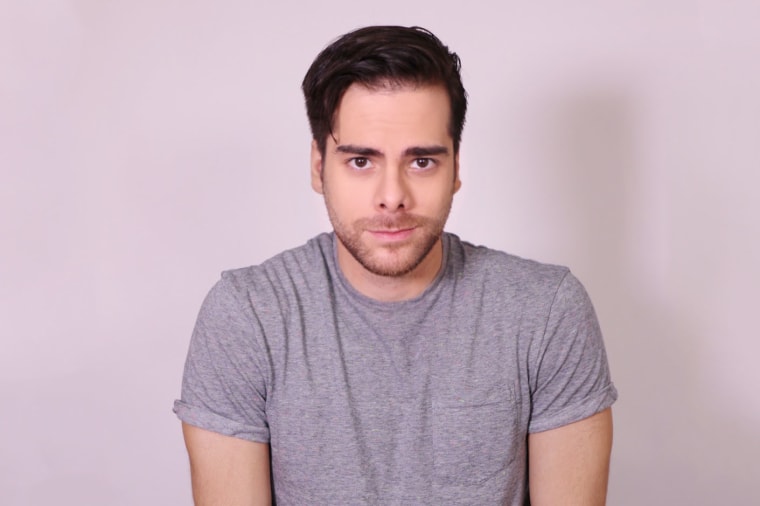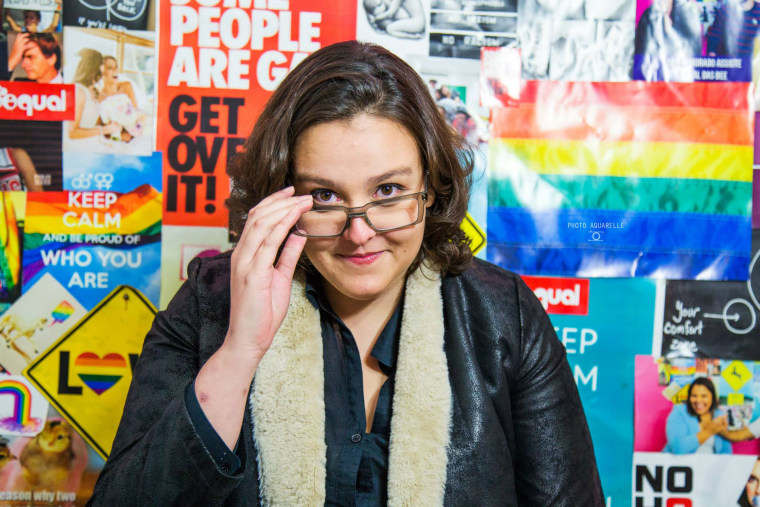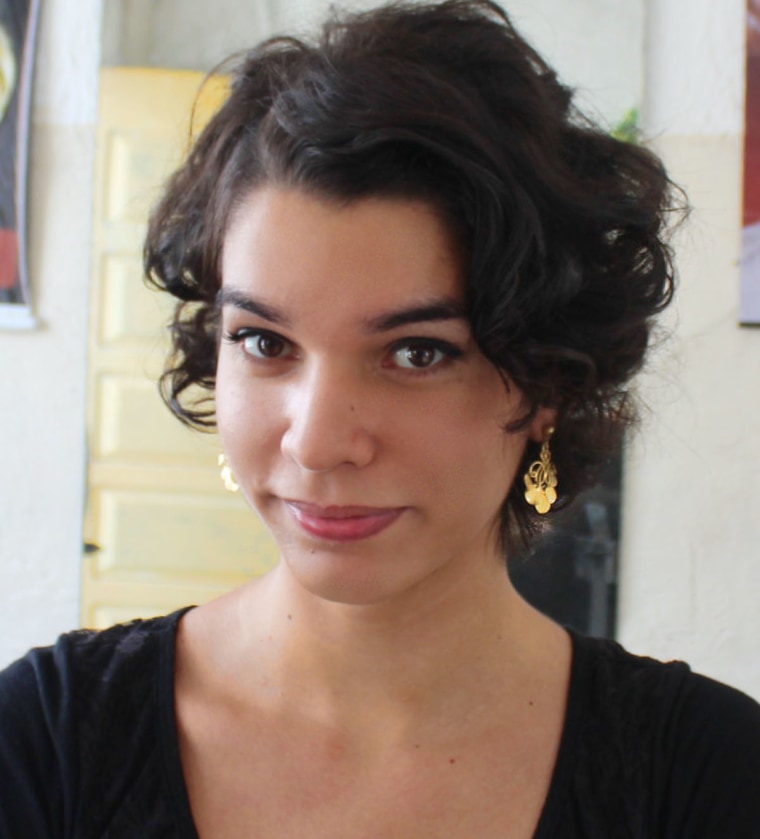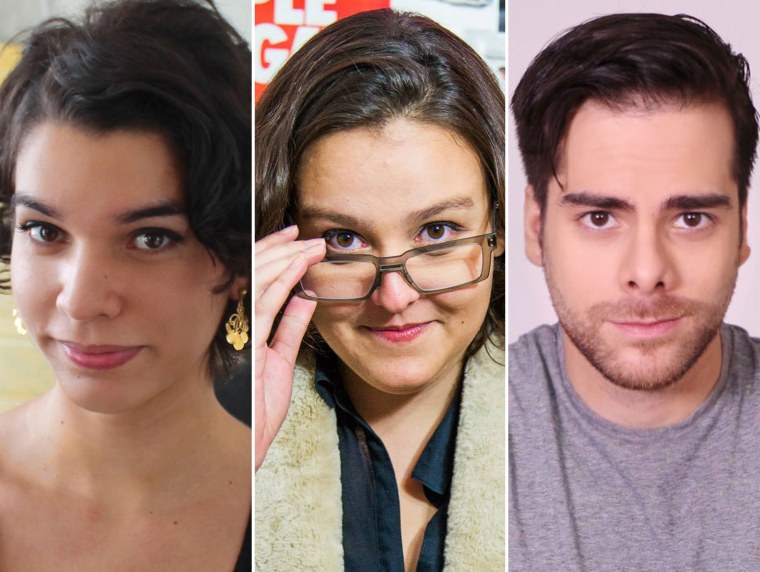Pedro HMC had a very strong reaction when a conservative Brazilian politician proposed early last year that there be a Heterosexual Pride Day in Brazil.
“I was so angry about it,” HMC said. “We are a minority, and as a gay man in Brazil, I don’t have the same rights, and this politician is wanting to make a ‘Straight Pride Day.’ For what?”

The young filmmaker and resident of São Paulo decided to funnel his anger into his creativity and made a two-minute parody video of the proposal on his YouTube channel, Põe na Roda.
“In the video we are explaining the reasons why straight people need a ‘Straight Pride Day.’ So that they will have the same rights as LGBTQ people,” HMC explained. “Which is basically to have a lack of rights.” The video went viral and has since garnered nearly half a million views.
As the world turns its attention to Brazil for the 2016 Rio Olympics, a young generation of Brazilian YouTubers and activists are already using their audience on social media to turn their millions of views and shares into concrete social change for the LGBTQ community in their country.
“I think we are doing a great job, because with social media and the internet we can spread our voice,” HMC said.
“The internet is transforming the way information is shared. It is no longer necessary to rely on someone else to raise discussions."
Põe na Roda, with nearly half a million subscribers and more than 47 million views, is one of the largest LGBTQ YouTube channels in Brazil. As an example of its growing influence, HMC was invited to speak at a seminar hosted by Brazil’s National Congress last year.
“I think this is one of the signs that the video is going straight to where it should go,” he said of the experience.
Despite many laws aimed at giving more rights to LGBTQ individuals in Brazil, including the passage of marriage equality in 2013 and a 2007 ruling by federal judges that sexual reassignment surgery be provided free of cost, the social stigma attached to those who identify as LGBTQ in Brazil is still quite strong.
A study conducted in 2015 found nearly 20 percent of companies in Brazil would refuse to hire someone based on their identification as a sexual minority. Brazil also faces extremely high rates of anti-gay violence.
HMC stressed that Põe na Roda is just one of many YouTube channels in Brazil working to bring more awareness and understanding to these types of issues through a mix of both humor and serious commentary.

The channel Canal das Bee, with nearly 300,000 subscribers and more than 23 million views, is also adding to the discussion -- but with an emphasis on the female perspective.
“We discovered there were a lot of gay YouTube channels, but for lesbians and bisexuals it was an invisible place to be,” explained Fernanda Soares, who creates content for Canal das Bee along with Jessica Tauane. “So in the past two years we have consciously made content to talk about women’s rights and the different prejudices homosexual women suffer as opposed to men.”
Soares said she is heartened by the messages of support she has received from teenagers who say the videos on Canal das Bee have helped them work through their own struggles with their sexual identity. But she is quick to note that the response hasn’t always been positive.
After Canal das Bee published a video critical of a Congressman who infamously told a Congresswoman, “I won’t rape you because you’re not worth it,” Soares said the two women offering their commentary in the video began to receive threats to their personal safety.
“We’ve received threats online from people saying ‘We’re going to rape you, we’re going to kill you,'” Soares explained. “And then sometimes people find us on our personal Facebook pages and make the threats there.”
But Soares said they don’t let the threats deter them from making more content. “As long as [people are making threats], it makes our work important,” she said.
With regards to physical violence, the trans community in Brazil is especially vulnerable. According to a study conducted by Transgender Europe (TGEU), Brazil reported the highest number of killings of trans and gender diverse people in the 65 countries TGEU monitors. Between January 2008 and December 2015, more than 2,000 trans and gender diverse people were reported killed, more than 800 of them in Brazil. And many human rights leaders believe the actual numbers are higher, since often times the victims of these crimes are not classified as transgender.

Citing this high level of violence, as well as high levels of prostitution and HIV infection among trans women in Brazil, 23-year-old Sofia Favero said she was compelled to create the Facebook page Travesti Reflexiva in 2012.
“A 'travesti' is a person who has subverted the gender norms forced upon them before birth,” Favero explained. “This is an individual who doesn’t accept existing strictly in the two single categories of male or female.”
Travesti Reflexiva now has more than 200,000 likes, and posts made on the page often receive thousands of shares. Favero said she uses the page to bring more awareness and discussion to issues relevant to travesti, which she described as an "identity rooted in Latin culture" and one that "faces a series of stigmas."
Favero believes the level of engagement and discussion created by her page wouldn’t be possible if not for social media.
“The internet is transforming the way information is shared. It is no longer necessary to rely on someone else to raise discussions,” Favero said. “The focus of virtual activism is to arouse empathy in others, so that this fight should not be mine alone to fight.”
HMC of Põe na Roda agrees and stressed it is important to reach an audience outside of the LGBTQ community.
“I don’t believe as a sexual minority we will be able to get our full rights unless we have the support of at least a part [of the population] who is straight,” he said. “With them we are a majority, not a minority. So it is really nice to introduce those [who don’t identify as LGBTQ] into our universe so we can have them by our side.”
Soares of Canal das Bee also believes it is important to combine traditional forms of activism with the new platforms social media provides.
“We still need the activism that goes to the streets and does riots and makes noise in the real world,” she said. “But making noise on social media is also important, because it raises attention for people -- and starts conversation.”
